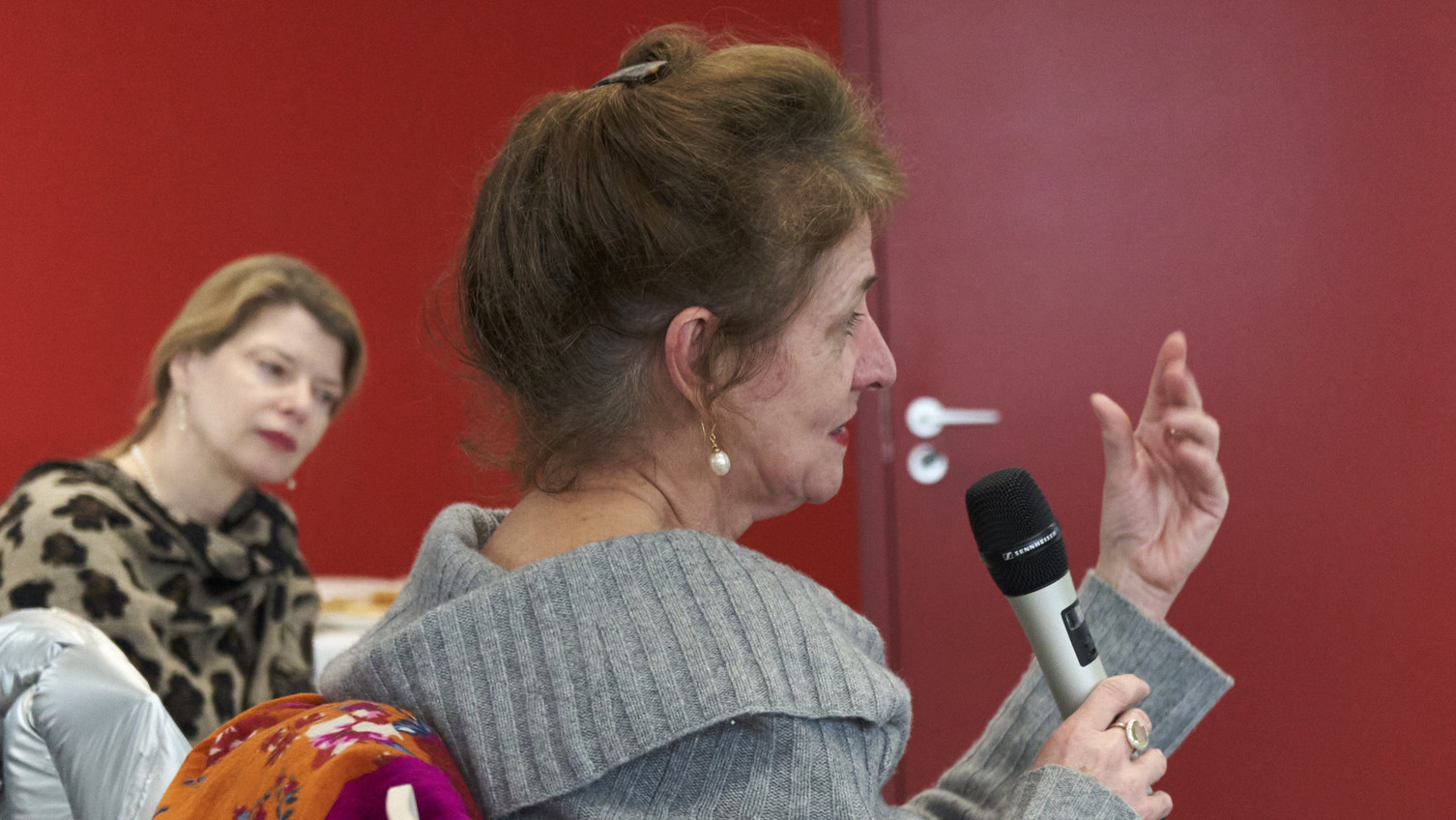Our closing event will be devoted to reflecting on the initial question of the "Cultures of Critique" Research Training Group: What is the relationship between the theory and practice of critique?
Over the past nine years, our program has focused on critical practices, analyzing their instances, subjects, frameworks, claims to validity, and modes of effectiveness both in their specific situations and in their global interdependencies.
Our research has shown that critical practices cannot be separated from the forms and media of their representation, as they constitute the object of critique and shape its societal effects. Post- and decolonial as well as transcultural perspectives have challenged fundamental assumptions about critique rooted in the Enlightenment, particularly the fact that theoretical models have often emerged from intervening, protesting practices.
During our event, (former) graduate students and guests will reflect on the relationship between theory and practice in their research in short presentations.
A concluding panel discussion with Gertrud Koch (FU Berlin/Leuphana Universität Lüneburg), Premesh Lalu and Maurits van Bever Donker (University of the Western Cape, Cape Town), moderated by Erich Hörl, will examine the societal role of the university.
21. - 22.11.2024 | Poster | Booklet
Organized by Dyoniz Kindata, David Cabrera Rueda, Lydia Ouma Radoli
This workshop emphasizes the use of an interdisciplinary approach to address media crises and world imaginaries practically. When considering world imaginaries, it is important to view them not only as a means of escaping the present or/and the past as mere aspirations for collective perceptions, beliefs, values, and ideas. Instead, we propose to approach world imaginaries as a strategic tool for conceptualizing and transforming attitudes, behaviors, and actions critically in shaping the future of human experiences and societies in the media world.
Can interdisciplinary approaches provide effective strategies for addressing fractures in media narratives? How might these approaches contribute to a more nuanced understanding of historical and contemporary media challenges? To what extent does the changing global space of media practice influence the conceptualization and representation of possible world imaginaries? How can these be reconfigured to address emerging challenges?
The workshop is hosted by the DFG Research Training Group “Cultures of Critique“ (Leuphana University Lüneburg) in collaboration with Leuphana Institute for Advanced Studies in Culture and Society (LIAS), Sorbonne Nouvelle Paris 3 and Daystar University.
12.1.2023 Workshop | Flyer | Booklet
Critique Now. Interdisciplinary Perspectives on Critical Practices
Gäste: Isabelle Graw (Städelschule, Frankfurt), Orit Halpern (TU Dresden) und Nishant Shah (ArtEZ University of the Arts, The Netherlands)
In recent years, different developments have challenged the concept of critique. On the one hand, new technologies and modes of distribution have given rise to a large number of new practices of expressing dissent, discomfort and objection whose criticality needs to be clarified in each case. On the other hand, postcolonial, decolonial, and transcultural perspectives have problematized fundamental assumptions about critique rooted in the Enlightenment. These developments raise new questions about the validity claims, situatedness, and subjects of critique.
We invited international scholars from various academic disciplines to address these questions against the background of their own research. Their contributions will be the starting point of discussions about a contemporary concept of critique among the third generation of PhD students of the Research Training Group Cultures of Critique. As with this event we would like to welcome the new fellows and say goodbye to the parting group.
Ein Hotel im alten Westen Berlins, das gegenüber vom Delphi-Filmpalast auf seine Renovierung wartet. Dort fotografierte Nan Goldin 1993 Amanda im Kaltwasserbecken. Goldin machte auch das Autorinnenfoto für den ersten Roman der New Yorker Autorin Lynne Tillman Haunted Houses (1987). Es sind diese Verschränkungen von Zeitlichkeit, Zufall und Realitätsebenen, die die Kunstwissenschaftlerin Isabel Mehl in ihrer Auseinandersetzung mit Tillmans fiktiver Kunstkritikerin Madame Realism faszinieren.
Madame Realism ist eine Figur, die von der US-amerikanischen Schriftstellerin und Kulturkritikerin Lynne Tillman (*1947 in Woodmere, Long Island) erschaffen wurde. Seit dem ersten öffentlichen Auftritt dieser fiktiven Kunstkritikerin 1986 in der Zeitschrift Art in America, erschienen 17 weitere Madame Realism Geschichten. Als Protagonistin der Geschichten driftet Madame Realism zwischen Fakt und Fiktion, zwischen New York und Umwelt, ihrer Wohnung im East Village und der sie umgebenden Großstadt, zwischen Kunstwerken und Kontexten, Gesellschaft und ihren Randgebieten, Repräsentation und dem Nicht-Repräsentierten. Sie ist eine Agentin des Zweifels, der stetigen Bewegung zwischen möglichen Standpunkten. Inmitten von Selbstreflexion, Reizüberflutung und männlich dominierter Kunstwelt lotet Madame Realism neu aus, welche Position ein schauendes und schreibendes Subjekt einnehmen kann. Wer erkennt sich in der Kunst wieder, und warum? Die Frage nach der Repräsentation, die Madame Realism aufwirft und der sie nachgeht, hat an Gegenwärtigkeit nichts eingebüßt.
Isabel Mehl untersucht das Wechselspiel zwischen Kritik und Imagination in den Madame Realism-Geschichten und zeigt, was es bedeutet, Fiktion als kritische Form des Denkens zu praktizieren. In einer fragmentarischen Lesung aus ihrem Buch „Im Zeichen des Zweifel(n)s. Madame Realism oder: Die Funktion der Fiktion in der Kunstkritik“ (2022) spürt sie gemeinsam mit der Künstlerin Alina Schmuch einigen Fährten des Textes nach.



![[Translate to Englisch:] Beate Söntgen](/fileadmin/_processed_/9/2/csm_Abschlussveranstaltung_des_Graduiertenkollegs__Kulturen_der_Kritik_-3_29153d47f2.jpg)













![[Translate to Englisch:] Foto des Workshops](/fileadmin/_processed_/9/c/csm_CritiqueNow03_ea289ce340.jpg)


![[Translate to Englisch:] Nishant Shah](/fileadmin/_processed_/8/1/csm_CritiqueNow12_17583f4a8c.jpg)
![[Translate to Englisch:] Orit Halperl](/fileadmin/_processed_/1/1/csm_CritiqueNow18_d313aa6a74.jpg)
![[Translate to Englisch:] Amelie Buchinger und Orit Halpern](/fileadmin/_processed_/5/d/csm_CritiqueNow20_6a00190696.jpg)
![[Translate to Englisch:] Beate Söntgen und Liza Mattutat](/fileadmin/_processed_/4/b/csm_CritiqueNow25_c6d3e948ff.jpg)
